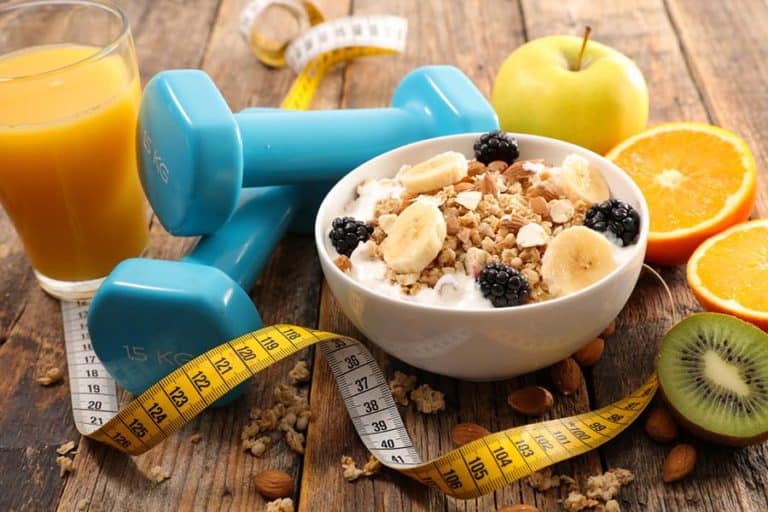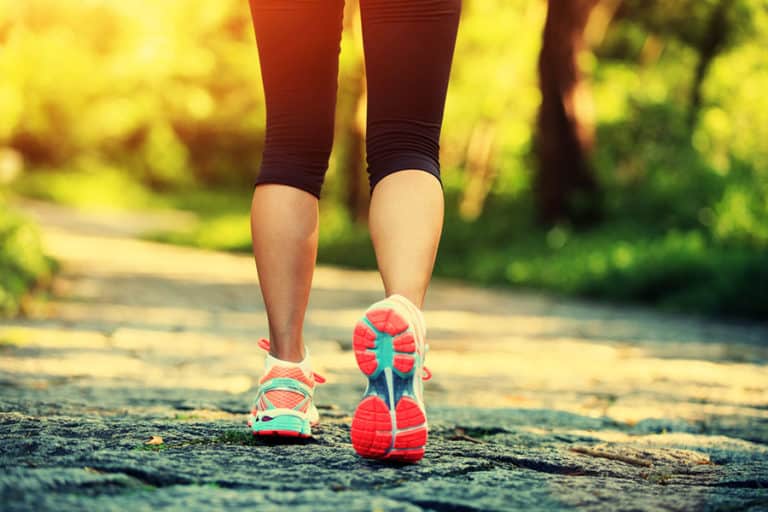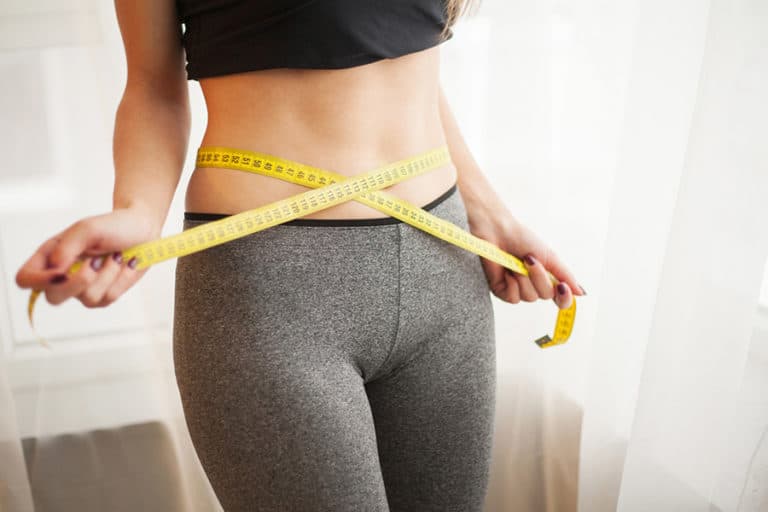Does Drinking Water Help You Lose Weight? Find Out How

Does drinking water help you lose weight? What does science have to say about water’s role in weight loss?
If there is one element that defines and constitutes our world and our bodies more than anything else, it is water. From the throbbing blood in our veins to the very last cell that constitutes that blood and those veins, everything is primarily composed of water. It is not just a part of your body alone. It is also the element that constitutes everything that goes into your body.
But we live in a world that’s surprisingly shallow(pun intended). The health benefits of water have been reduced to the ultimate fitness query: “does drinking water help you lose weight?”
Very well then, let us tackle the question. After all those fancy weight-loss diets, exercises, treatments, and therapies, is water the next big weight-loss miracle?
Let’s dive in.
Benefits of drinking water
There is simply no part of the body that does not benefit from consuming the optimum amount of water. Optimum is the operative word here. It is crucial to remember that even water can turn harmful to the body’s health and well-being if consumed in excess.
Factors such as age, health conditions, climate, and lifestyle can alter individual daily hydration requirements. Keeping those variables in mind, when the body is kept well hydrated, it is so much less likely to be unhealthy. For our convenience, let us divide the benefits of drinking water into two broad categories:
Physical Benefits
As the primary constituent of the human body, water is central to the growth, upkeep, and regeneration of our body. Of course, staying hydrated will help you lose weight as well, but we will come to the benefits that impact your weight in the next section. Let us first look at the other physical benefits of drinking water:
- Water is the primary carrier of nutrients to all parts of the body. A well-hydrated body is also a well-nourished body.
- It ensures ideal blood pressure levels by maintaining a balance between the plasma-blood cells ratio.
- Maintains lubrication [1]Orthopedic Associates: Dehydration and Joint Pain: How Your Hydration is Affecting Joint Health in all the joints. This, in turn, ensures less wear and tear of bones and joints as we age.
- Water is essential for the functioning of both kidneys and intestines in flushing out waste in the form of urine and stools.
- Water plays a central role in regulating body temperature. Temperature fluctuations often result in the loss of hydration from the body in various forms. Sweat is one of the most obvious forms, but there are many others.
- The body’s electrolyte balance depends on water. All the minerals are dissolved in and transported through water. Lack of hydration will eventually lead to deficiencies and electrolyte imbalance.
- Do we even need to tell you how the health of your skin and hair depends on water? Lack of hydration often shows up on the skin, lips, and hair before it shows up elsewhere. Keeping your body well hydrated ensures that your skin [2]National Library of Medicine: Dietary water affects human skin hydration and biomechanics is supple and naturally moisturized and that your hair is soft, shiny, and extremely elastic.
| Did you know A healthy strand of hair can be stretched up to 25% of its original length without breaking. |
Mental Benefits
Water accounts for 75% [3]PubMed: The Effects of Hydration Status on Cognitive Performances among Young Adults in Hebei, China: A Randomized Controlled Trial (RCT) of the brain mass. No wonder then that one of the most evident signs of dehydration is the wavering of the mind. Dehydration causes brain fog, difficulty in focusing, and repeated memory lapses. As little as 2% dehydration is known to cause severe mental impairments. Here is why you need to keep your brain well hydrated:
- There are studies [4]PubMed: Cognitive performance and dehydration that have shown actual physical changes and alterations in the structure of the brain when it is dehydrated. These studies have also demonstrated that rehydration can reverse those physical damages in the brain and lead to improved brain functioning.
- The human brain [5]National Library of Medicine: Physiology, Cerebral Spinal Fluid requires specific fluids to keep it functioning as well as to protect it by cushioning it from external stress and trauma. A well-hydrated brain is much less susceptible to internal and external injuries.
- Drinking water stimulates and maintains the functioning of the neural system. The minerals that transmit our brain’s signals are dissolved in the form of intracellular fluids. When the body is well hydrated, there is enough fluid in our nerve cells to send and receive brain signals. In simple words, your brain and body are well-coordinated.
- Drinking enough water keeps your brain swimming in its happy juices for longer. Many studies have proven that proper hydration can have a positive impact on our moods. It facilitates the production of happy hormones [6]PubMed: Brain serotonin metabolism during water deprivation and hydration in rats like serotonin and dopamine. So, forget the booze. You can literally drown your sadness with a good slug of water.
- In the absence of water, the body’s infamous stress hormone cortisol starts rising. This is because when you consume less water, the body sees it as a sign of starvation, illness, or danger and kicks in its stress responses. Drinking enough water throughout the day keeps your body from going into stress mode.
- More and more research has demonstrated that drinking water helps reduce panic attacks and symptoms of anxiety and depression.
- It also keeps your memory function and your cognitive abilities in good shape.
Does drinking water help you lose weight?
There is a substantial amount of truth to the idea of drinking water to achieve healthy weight loss. Be warned. It isn’t as simple as water-in, calorie-out. Water promotes weight loss more as an aid to overall weight reduction than as a primary fat burner. With this much in mind, let us look at the ways in which drinking water and weight loss are connected.
How are drinking water and weight loss connected?
Increasing the intake of water has been observed to promote overall weight loss. This water-induced weight loss comes about due to various reasons. Here are some ways in which increased water consumption can promote weight loss in direct and indirect ways:
Keeps you full
The human brain often registers its thirst in the form of hunger pangs. Without realizing it, you may have stuffed your mouth with a snack when all you needed was a glass of water.
Water has practically no calories. When you substitute food with water, you reduce your caloric intake to zero. Drink water before your meal to reduce your food intake and simultaneously increase your post-meal metabolism.
Replace one snack in the day with a glass or two of water. This will reduce your capacity to eat anything else after. By reducing your overall food intake through substitution, water consumption can promote a healthy weight loss.
Reduces liquid calorie intake
Liquid calories can be a considerable contributor to your body weight. Apart from water, almost every other liquid that you consume comes with calories in the form of sugar or fat. Sugary drinks, sugary beverages, calorie-loaded juices, and sodas can quickly up your calorie consumption and body weight. These calorie-filled drinks often fail to make us feel full. This means we continue eating even after consuming these drinks, thereby sabotaging our weight loss goals.
On the other hand, water is calorie-free and makes us feel full. Increasing water intake considerably reduces your calorie intake from other liquid and beverage sources. This means that drinking water reduces our overall calorie intake for the day and aids weight loss. Substituting unhealthy food and drinks with water is bound to reflect positively on your waist circumference as well as your weighing scale.
Promotes smoother digestion
Our kidneys and guts function better when our bodies are well hydrated. Basically, if your water intake is high enough, you have fewer chances of food waste and toxins lying around in your body. Lack of water can lead to constipation, reduced urination, and as a result, possible bloating, swelling, and gout. All that toxic, putrid waste will reflect on your weighing scales, measuring tapes, and BMI (body mass index).
Enhances metabolism
Drinking up to 8 or more glasses of water per day can considerably enhance your body’s metabolic rate. This is because your body needs water to break down food and process calories.
Drink a glass of water or some other healthy, unsweetened beverage before every meal to get your metabolism revved up and ready. Ensuring that you are adequately hydrated on a regular basis will soon reflect in the form of a much healthier body mass index.
Improves resting energy expenditure
Drinking water can increase the total number of calories our bodies typically burn (resting energy expenditure). This resting energy expenditure has been observed to rise by as much as 24-30% within 10 minutes of drinking water. This process stays active for at least 60 minutes after that. Surprisingly, increasing water intake by 500ml can result in the loss of 2 kgs of fat [7]PubMed: Drinking water is associated with weight loss in overweight dieting women independent of diet and activity over a year.
Reduction in stress eating
One of the primary reasons behind unhealthy food habits and binge-eating is stress. Mental health issues like depression, stress, anxiety, or even panic attacks manifest themselves in the form of bouts of binge eating.
Dehydration, as we know, causes changes in the brain which further makes us more likely to fall prey to depression or stress. Consumption of water or other fluids can significantly reverse these impacts. With a healthier brain, you are less likely to have sudden unhealthy food cravings.
Cold water promotes fat burning
Finally, there is cold-water-induced fat burning. This is a result of a process called thermogenesis. When you consume cold or even room temperature water, the body has to burn calories to bring it up to the body’s normal temperature level. In men, the body’s lipids are used up for this process, while in women, it is normally the carbs.
So if you are looking for a way to spend those accumulated fat and carb calories, try a chilled bottle of water. And no, chilled beer won’t do this trick. Swap the alcohol for some chilled water to replace beer bellies with fab abs.
How much water should I drink to lose weight?
The studies [8]The Journal of Clinical Endocrinology & Metabolism: Water-Induced Thermogenesis around thermogenesis have shown an increase of approximately 400 KJ of energy for the consumption of 2 liters of water per day. As mentioned earlier, a 500 ml increase in daily water intake can result in the loss of 2 kgs of fat over a year.
While there is enough evidence to prove that the consumption of water can in fact, promote weight loss, the obverse of this is also true. Over-consumption of water has also been observed to lead to weight gain. This takes the form of problems like water weight or water retention.
Below is a table listing the recommendations for water consumption according to age and gender. Whether or not you aim to lose weight, your average consumption of water shouldn’t vary too much from the specifications given below.
| Age/Gender | Recommended water consumption |
| 4-8 years(children) | 40oz |
| 9-13 years(children) | 56-64oz |
| 14-18years(children) | 64-88oz |
| 19 years and above(adult male) | 104oz |
| 19 years and above(adult female) | 72oz |
| Pregnant women | 80oz |
| Breastfeeding women | 104oz |
Tips to improve daily water intake
Modern life barely leaves us enough time to pay attention to the needs of our bodies. And yet, bad water-consumption habits are not always and everywhere a result of lifestyle alone.
Factors such as climate can also cause you to consume less water than you need. Given such challenges, it is important to find ways and means to get water into your system. Here are a few tips and tricks to do the same:
- Keep a water bottle at hand throughout the day. Keep it at your dining table, worktable, and bedside table.
- Sip some water every time you feel the need to eat junk. This will save both your money and health.
- Swallow all your medicines with a cup of room-temperature water. Never gulp them down directly. This way, you’ve had a little more water in a day, and your medicines get dissolved, transported, and absorbed better.
- Monitor your alcohol and caffeine consumption. While coffee and alcohol are technically liquids, they induce other forms of water loss (e.g., increased urination) and dehydration. It has also been observed that these beverages make you feel thirsty. Moreover, in large quantities, they turn out to be extremely unhealthy. If you love your daily booze and your morning cuppa, just reduce your consumption to moderate levels and alternate them with healthy or decaffeinated drinks.
- Make it a point to have at least one glass of water prior to every meal.
- Keep away from artificial, sugary drinks. If you have to consume alternative drinks, try to drink healthier alternatives like fresh juices, infused waters, healthy sports drinks, soups, broths, yogurt, milk, and so on.
- Add some zing into your water. Stick a citrus wedge into the water you drink. A small wedge of lime or lemon may do the trick. Alternatively, you can try sticking a sprig of mint or a slice of cucumber in your water. Making your water refreshing will go a long way in encouraging you to sip it more often.
- If you cannot drink more water, eat more water! Consume more water-rich foods. Try consuming fruits and veggies that are rich in water content. A typical 100gm bowl of fruit salad will have anywhere between 70-90gms of water.
Conclusion
Water is essential for the proper functioning of every system. It aids in the transportation of nutrients and also acts as a medium for various chemical reactions. As such, it should come as no surprise that water plays an important role in promoting weight loss.
While the jury is still out on how much water one should consume to lose weight, the general consensus is that drinking more water can help. This is because drinking water can help to boost metabolism, reduce appetite, and promote satiety.
So, if you’re looking to lose weight, make sure to drink plenty of water! And if you find it hard to down all that water, try spicing it up with some fruit or mint, or simply eat more water-rich fruits and vegetables.
FAQs
The idea of consuming water to help with weight loss is not something most people among us are completely familiar with. Here are some commonly asked questions about drinking water and weight loss to help you understand the concept better.
References
| ↑1 | Orthopedic Associates: Dehydration and Joint Pain: How Your Hydration is Affecting Joint Health |
|---|---|
| ↑2 | National Library of Medicine: Dietary water affects human skin hydration and biomechanics |
| ↑3 | PubMed: The Effects of Hydration Status on Cognitive Performances among Young Adults in Hebei, China: A Randomized Controlled Trial (RCT) |
| ↑4 | PubMed: Cognitive performance and dehydration |
| ↑5 | National Library of Medicine: Physiology, Cerebral Spinal Fluid |
| ↑6 | PubMed: Brain serotonin metabolism during water deprivation and hydration in rats |
| ↑7 | PubMed: Drinking water is associated with weight loss in overweight dieting women independent of diet and activity |
| ↑8 | The Journal of Clinical Endocrinology & Metabolism: Water-Induced Thermogenesis |







